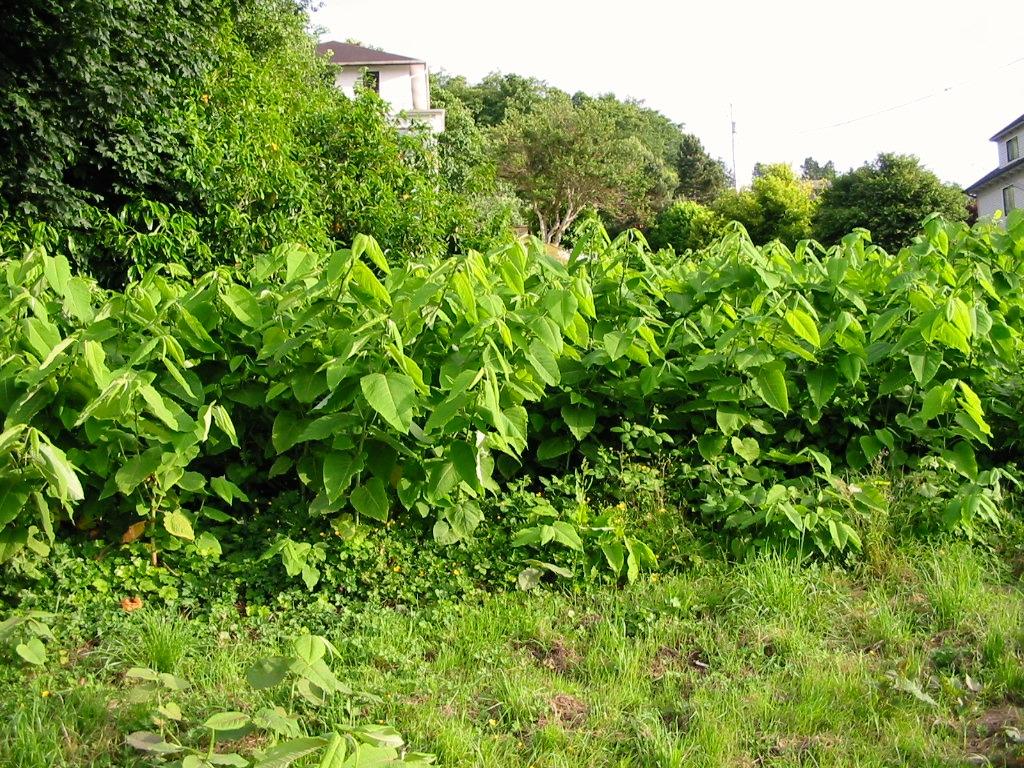How Japanese Knotweed Affects House Insurance: Are You Covered?
Japanese knotweed can have a negative impact on the value of your property, not to mention causing conflict between neighbours and causing stress in your day-to-day life. Discovering a knotweed infestation can also lead to some very expensive costs, which many might wish to alleviate by relying on their home insurance. Unfortunately, making a claim on your home insurance after discovering Japanese knotweed is not always straightforward, or even possible, in most cases.
If you’re new to Knotweed help, we’re Japanese Knotweed claim Specialists. Experts in Japanese Knotweed law, we are keen to provide you with clear Japanese knotweed legal advice and assistance. Get in touch today on our claim form to find out how we can help you with your Japanese knotweed problem. Well-versed in all aspects of knotweed, we also produce Japanese knotweed guides such as how to get rid of Japanese knotweed.
We can answer your Japanese knotweed questions!
Talk To UsContents
Does house insurance cover Japanese knotweed?
Most house insurance policies will not cover losses incurred as a result of Japanese knotweed. However, there are some exceptions to this rule, such as if the plant has caused subsidence, or if it has spread from a neighbouring property. Having Japanese knotweed on your land also might prompt other questions, such as how it could affect your premiums and if your insurance might cover the legal costs of a Japanese knotweed claim made against you.
Will my insurance provider pay for the treatment of Japanese knotweed?
Home insurance providers will not pay for the treatment of Japanese knotweed. If you have discovered the plant on your land and can prove that the Japanese knotweed is from a neighbouring property, or the seller has lied about the Japanese knotweed, then you may be able to claim compensation to cover the cost of damages.
Am I covered for damage caused by Japanese knotweed?
Standard house insurance policies do not typically cover the costs related to repairing the damages caused by Japanese knotweed growing on your land. However, in the case that the Japanese knotweed has caused structural damage to your home, like subsidence, you may be able to claim for damages. Although, successful claims are only likely to be made when you can prove that you have taken reasonable steps to eradicate the Japanese knotweed before the subsidence took place.
This is a good example of how important it is to not delay dealing with a Japanese knotweed infestation, doing so can result in serious repercussions such as the above, as well as the potential legal implications of allowing the plant to spread to a neighbouring property and running foul of Japanese knotweed law.
We can answer your Japanese knotweed questions!
Talk To UsWill my insurance cover Japanese knotweed from a neighbouring property?
Depending on your policy, your insurance may cover the cost of repairing damage caused by Japanese knotweed entering from a neighbouring property. In this circumstance, your insurers may seek to pursue your neighbours for the costs related to the damage to the property.
Will my insurance cover legal expenses if my neighbour claims for Japanese knotweed damages?
Your insurance policy might cover the cost of legal expenses in the event that your neighbour attempts to claim compensation for damages caused by Japanese knotweed entering your land.
It is against the law to allow Japanese knotweed to spread from your land into a neighbouring property, regardless of if it’s publicly or privately owned. If your neighbour can prove that you have allowed the plant to spread into their land then you could be found liable for the loss of value of the property, as well as any treatment costs that the infestation might have incurred.
In most cases, you are able to add-on legal expenses insurance to your standard home insurance policy. You may wish to assess the fine print in your current policy if you’re worried that you might not be covered for this eventuality.
Do I need to inform my insurance provider that I have Japanese knotweed?
You do not need to inform your insurance provider about the Japanese knotweed on your land. In the event that you find Japanese knotweed on your property, you should do as much as you can to prevent it further spreading and causing damage to your property. If you fail to do this, your insurance provider may decline a future claim for damage caused by subsidence, on the grounds that you have acted negligently in not treating the problem sooner. In the eventuality that you are directly asked about the presence of Japanese knotweed on your property by your insurance provider, you must be honest with them.
We can answer your Japanese knotweed questions!
Talk To UsCan I get house insurance if I have Japanese knotweed?
You can still get house insurance if you have Japanese knotweed on your land. As standard house insurance policies do not tend to cover the costs of removing Japanese knotweed or the damages caused by the plant to the property insurers are not likely to take this into account. However, in the case that you are directly asked about having Japanese knotweed, it’s recommended to answer honestly and openly.
Does having Japanese knotweed affect my house insurance premiums?
Having Japanese knotweed shouldn’t affect your home insurance premium. Most standard house insurance policies will not cover the removal of Japanese knotweed, or repairs to anything damaged by it. As such, your discovery of the plant, whether or not it has originated on your land, should not affect your premiums.
However, in the case that you plan on claiming damages related to subsidence caused by Japanese knotweed, you will likely find that your premium will increase. Don’t forget that, in the event that you do make a successful claim, you will also have to pay the excess laid out in your policy. Claiming for subsidence cover can also negatively impact your ability to get insurance cover for subsidence in the future, as your home will have been flagged as high-risk by the insurance companies.
What insurance do I need to cover me against Japanese knotweed?
Since 2015, it has been possible to buy specific Japanese knotweed insurance which covers the cost of removing the plant, and the potential costs related to claims against you, as a result of the knotweed spreading to a neighbouring property.
A Japanese knotweed indemnity insurance policy will cover the costs of treating and removing the infestation, in addition to preventative insurance-backed measures to stop the plant from returning. The policy should also cover the cost of a Japanese knotweed survey, as well as any reparation costs in relation to damages to the property and legal expenses paid for as a result of claims made against you. These policies were created with the intention of easing the conveyancing process, in cases where homes have been affected by the plant.
Japanese knotweed insurance policies are usually for 10 years, with the limit of indemnity being based on your property’s market value, offering valuable protection to both you and your mortgage lender. It should be noted that these Japanese knotweed indemnity policies are only available for residential properties where the presence of the plant is not known, or if treatment has taken place to the satisfaction of the mortgage lender. Getting a mortgage with Japanese knotweed is another challenge altogether that is worth considering before purchasing a property with a history of infestations.
We can answer your Japanese knotweed questions!
Talk To UsToo little, too late?
Unfortunately, Japanese knotweed indemnity policies, such as the above, have not been advertised to their full extent, so for many, the discovery of them will be a case of too little, too late. If you’ve found Japanese knotweed on your land, and have found that your insurance does not cover the costs of repairing damages or removal, then you may be able to seek compensation against the seller of the property or even the persons or organisations who have allowed the plant to spread to your land.
Get in touch with us by sending a message using the contact form, or calling on 0151 668 0560.

